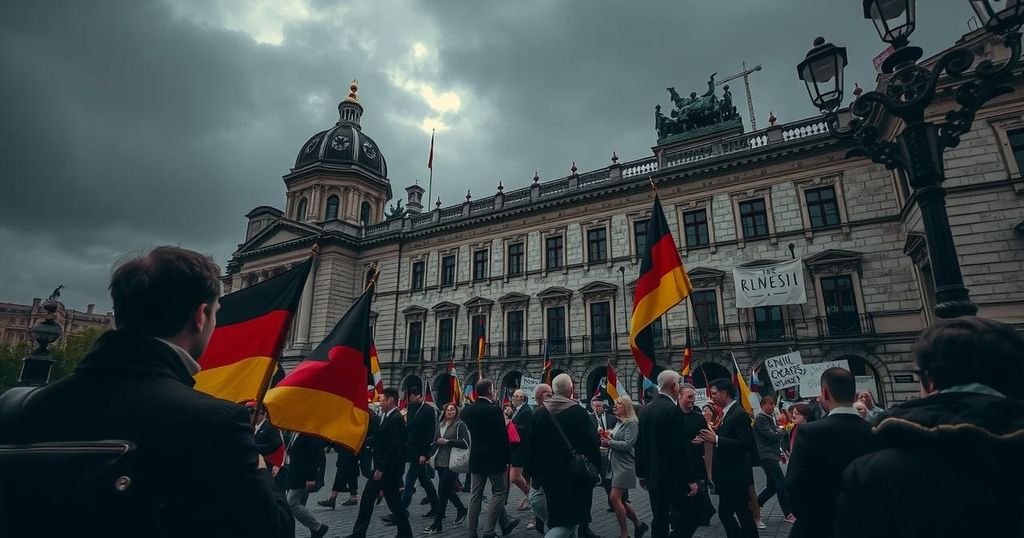The article discusses Germany’s complicity in Israel’s actions in Gaza, highlighting the historical parallels to its own colonial past in Namibia. It covers the recent protests against Israeli military operations resulting in mass casualties among Palestinians, while also criticizing German officials’ justifications for these actions. The narrative illustrates a strong resistance within European nations calling for an end to support for Israel amid accusations of genocide and war crimes.
Germany’s current stance regarding Israel’s actions in Gaza has evoked grave concerns reminiscent of its historical transgressions. As the Israeli military engages in an extensive campaign in Gaza, resulting in over 42,000 Palestinian casualties, including a heartbreaking number of innocent children, criticisms have arisen regarding the complicity of German officials in perpetuating violence against civilians. On the pretext of countering terrorism, figures such as German Foreign Minister Annalena Baerbock have suggested that civilian casualties may be acceptable in the context of Israel’s self-defense. This sentiment has not only sparked protests in Germany and other European nations but also incited backlash from Palestinian resistance organizations, further revealing the deep divisions in responses to the conflict. Protests have exploded across cities in Europe, particularly in Germany, where demonstrators highlighted the plight of Gaza and called for an immediate cessation of military support for Israel. Demonstrators were met with police opposition, who engaged aggression towards protestors, often citing public safety concerns. Despite this, there remains a palpable public outcry against the ongoing atrocities, with calls for arms embargoes and government accountability. The human toll of the conflict is staggering as Israeli attacks have claimed thousands of lives in both Gaza and Lebanon, wherein the death toll from the latter also continues to rise in the wake of hostilities. Furthermore, the call for accountability extends beyond just the protests. The International Criminal Court has opened proceedings against Israeli officials for potential war crimes, while Nicaragua has filed actions against Germany for allegedly supplying arms that facilitate these ongoing conflicts. In reflection on Germany’s turbulent historical legacy, critics assert that the nation is repeating its past errors by tacitly supporting what they characterize as genocidal actions in Gaza, calling for urgent reassessment within the German government as well as among its European allies. The legacy of the Herero and Nama genocides in Namibia presents a striking parallel that some have drawn, emphasizing the moral weight of military and diplomatic decisions today.
The article addresses the ongoing conflict between Israel and Palestinian groups, particularly focusing on the devastating impacts of the Israeli military’s actions in Gaza and Lebanon. It critiques the role of Germany and its officials in justifying military actions that result in civilian casualties. This commentary is made against the backdrop of historical atrocities committed by Germany, particularly its colonial genocide in Namibia, drawing moral parallels concerning current military engagements.
The article concludes that Germany’s historical context and current policies present a troubling scenario, where the echoes of past genocides serve as a stark reminder of moral responsibilities in contemporary conflicts. The ongoing protests and international outrage indicate a significant public clamor for accountability and a reassessment of military support for regimes involved in high civilian casualties. The call for justice, both domestically and internationally, is becoming increasingly urgent as the humanitarian crisis deepens in Gaza and Lebanon.
Original Source: www.tehrantimes.com






